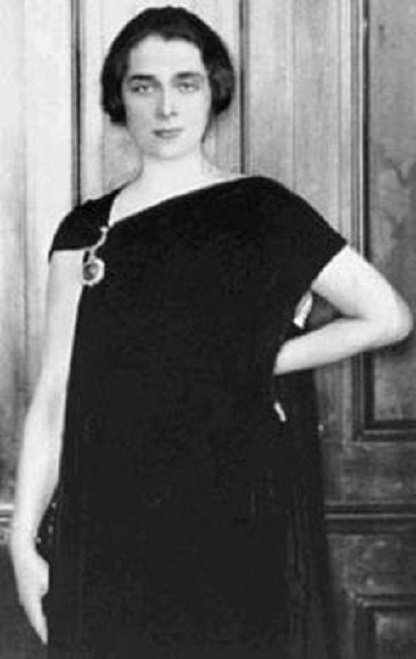Poem of the day. Anna Akhmatova - "When I Write Poems "
When I Write Poems
When I'm embraced by airy inspiration,
I am a bridge between the sky and earth.
Of all what heart high-values in creation
I am a king, when breathing with a verse!
Just if my soul wishes it, my fairy,
I shall give you the peaceful coast band,
Where, with a hum, the pinky sea is carrying
The dreaming tide to reach the dreaming land.
I can do all, just trust in me: I'm mighty;
I have the roots for kindness and for love;
And if I want, from clouds and from the lightning
I'll make a cover your sweet bed above.
And I can, dear, create a word such special,
That it would change laws of the whole world,
To call again its own celebration
And stop the sun from fall in the night cold.
I'm all another in my inspiration,
I am a bridge between the sky and earth.
Of all what heart high-values in creation
I am a king, when breathing with a verse!

Anna Gorenko was born on 23 June 1889 in a Bolshoi fountain near Odessa. He graduated from high school in Kiev, then studied law in St. Petersburg. She began writing poems from an early age and published them under the pseudonym Anna Akhmatova because of her father's unwillingness to be associated with his surname. In 1910, she married the poet Nikolay Gumilyov, and in 1912 her son, the future historian Lev Gumilyov, was born. Akhmatova and Gumilyov are among the main actors in the group of acmeists who oppose the symbolism of more restrained and classical poetic forms. They did not live long together, and in 1918 they divorced. Later Akhmatova is married to Vladimir Shilekko and Nikolay Punein. After the Communists came to power, Akhmatova was criticized by them for the elite of her poetry. Her situation became even more complicated after the execution of Nikolay Gumilyov in 1921. From 1923 to 1940 her poems were not published and she was mainly translating. Among her translators are Viktor Hugo, Rabindranat Tagor, Giacomo Leopardi, and various Armenian and Korean poets. In 1934, Akhmatova 's son Lev Gumilyov was arrested and sent to a camp in Siberia. During this period, she began writing the autobiographical cycle "Requiem", which was only published in 1989 and is sometimes considered to be her most significant work. After being released briefly, in 1937, Gummiov was again arrested. In 1940, some poems of Akhmatova were reissued, but a few months later the book was seized by bookstores and libraries. After the war with Germany in 1941, Anna Akhmatova was evacuated in Tashkent, where she remained until 1944. There she wrote poems with mainly patriotic content, which were published in 1943. After her return to Leningrad her poems continued to be printed in local publications, but following her meeting with British philosopher Isaiah Burlin in 1946, Andrey Zhdanov personally criticized her and the publication of her poems was again suspended. After the subsequent arrest of Lev Gummiyov in 1949, Akhmatova published several poems of praise to Joseph Stalin, hoping to help release him, but was not successful, and he was released only in 1956. After Stalin's death in 1953, Akhmatova's place in Russian literature gradually and hesitantly began to be recognized. Books with her poems began to be published in the late 1950s, but many remain banned from censorship by the end of the 1980s. During this period, she also wrote memoirs about Alexander Block, Amadeo Modilliani, Osip Mandelstam and her essays on Alexander Pushkin. In 1965, she was allowed to travel abroad to receive the Taormina Award in Italy and an Honorary Doctorate at Oxford University. Her translators in English are poet Stanley Kunitz and the fiction writer and author of Alexander Solzhenitsyn's D.M. Thomas. She died on 5 March 1966.

